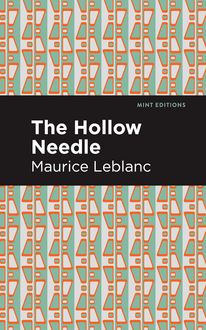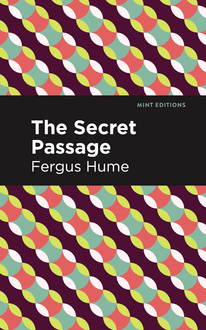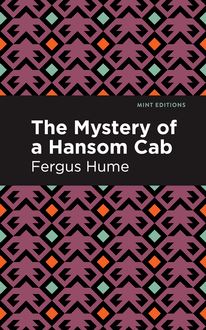-
 Univers
Univers
-
 Ebooks
Ebooks
-
 Livres audio
Livres audio
-
 Presse
Presse
-
 Podcasts
Podcasts
-
 BD
BD
-
 Documents
Documents
-
- Cours
- Révisions
- Ressources pédagogiques
- Sciences de l’éducation
- Manuels scolaires
- Langues
- Travaux de classe
- Annales de BEP
- Etudes supérieures
- Maternelle et primaire
- Fiches de lecture
- Orientation scolaire
- Méthodologie
- Corrigés de devoir
- Annales d’examens et concours
- Annales du bac
- Annales du brevet
- Rapports de stage
La lecture à portée de main
Vous pourrez modifier la taille du texte de cet ouvrage
Découvre YouScribe en t'inscrivant gratuitement
Je m'inscrisDécouvre YouScribe en t'inscrivant gratuitement
Je m'inscrisEn savoir plus
Vous pourrez modifier la taille du texte de cet ouvrage
En savoir plus

Description
The Great Court Scandal (1907) is a novel by Anglo-French writer William Le Queux. Published at the beginning of Le Queux’s career as a leading author of popular thrillers, The Great Court Scandal is a story of international espionage, intrigue, and forbidden romance. Using his own research and experience as a journalist and adventurer, Le Queux crafts an accessible, entertaining tale for readers in search of a literary escape. Known for his works of fiction and nonfiction on the possibility of Germany invading Britain—a paranoia common in the early twentieth century—William Le Queux also wrote dozens of thrillers and adventure novels for a dedicated public audience. Although critical acclaim eluded him, popular success made him one of England’s bestselling writers. In The Great Court Scandal, two British conmen wait in their upscale Paris hotel room for their ringleader to return. Guy—a high born man brought low through carelessness and misfortune—and Harry—a working class man gifted with wit and ambition—have had an unsuccessful time in the city, and are growing desperate to escape before the authorities catch up with them. Passing the time with mindless ribaldry and memories of danger and adventure, Guy and Harry are entirely unprepared for what comes next. When Roddy arrives with a stolen suitcase, he opens it to discover a parcel of letters belonging to the Crown Princess of Austria, whose scandalous secrets—however well hidden—will threaten her reign and her life. The Great Court Scandal is a throwback to the simpler days of entertainment, a bestseller that holds up over a century after it appeared in print. With a beautifully designed cover and professionally typeset manuscript, this edition of William Le Queux’s The Great Court Scandal is a classic thriller reimagined for modern readers.
Sujets
Informations
| Publié par | Mint Editions |
| Date de parution | 21 mai 2021 |
| Nombre de lectures | 0 |
| EAN13 | 9781513285900 |
| Langue | English |
| Poids de l'ouvrage | 1 Mo |
Informations légales : prix de location à la page 0,0500€. Cette information est donnée uniquement à titre indicatif conformément à la législation en vigueur.
Extrait
The Great Court Scandal
William Le Queux
The Great Court Scandal was first published in 1907.
This edition published by Mint Editions 2021.
ISBN 9781513280882 | E-ISBN 9781513285900
Published by Mint Editions ®
minteditionbooks .com
Publishing Director: Jennifer Newens
Design & Production: Rachel Lopez Metzger
Project Manager: Micaela Clark
Typesetting: Westchester Publishing Services
C ONTENTS P ROLOGUE I. C ONCERNS A C OURT I NTRIGUE II. H ER I MPERIAL H IGHNESS III. T HE R EVELATIONS OF A C OMMONER IV. H IS M AJESTY C UPID V. S OME S USPICIONS VI. T HE H OUSE OF H ER E NEMIES VII. A S HAMEFUL T RUTH VIII. I S M AINLY A BOUT THE C OUNT IX. T HE T HREE S TRANGERS X. T HE P ERIL OF THE P RINCESS XI. D OOM OR D ESTINY XII. “A N O PEN S CANDAL! ” XIII. T HE M AN WITH THE R ED C RAVAT XIV. I N S ECRET XV. T HE S HY E NGLISHMAN XVI. L IGHT F INGERS XVII. I N W HICH “T HE M UTE ” IS R EVEALED XVIII. T HE L ADYBIRD XIX. L EUCHA M AKES C ONFESSION XX. T HE H ERMIT OF H AMMERSMITH XXI. L OVE AND “T HE L ADYBIRD ” XXII. S HOWS H INCKELDEYM’S T ACTICS XXIII. S ECRET I NSTRUCTIONS XXIV. R OMANCE AND R EALITY XXV. S OME U GLY T RUTHS XXVI. P LACE AND P OWER XXVII. A W OMAN’S W ORDS XXVIII. C ONCLUSION
P ROLOGUE
T he Ladybird will refuse to have anything to do with the affair, my dear fellow. It touches a woman’s honour, and I know her too well.”
“Bah! We’ll compel her to help us. She must.”
“She wouldn’t risk it,” declared Harry Kinder, shaking his head.
“Risk it! Well, we’ll have to risk something! We’re in a nice hole just now! Our traps at the Grand, with a bill of two thousand seven hundred francs to pay, and ‘the Ladybird’ coolly sends us from London a postal order for twenty-seven shillings and sixpence—all she has!”
“She might have kept it and bought a new sunshade or a box of chocolates with it.”
“The little fool! Fancy sending twenty-seven bob to three men stranded in Paris! I can’t see why old Roddy thinks so much of her,” remarked Guy Bourne to his companion.
“Because she’s his daughter, and because after all you must admit that she’s jolly clever with her fingers.”
“Of course we know that. She’s the smartest woman in London. But what makes you think that when the suggestion is made to her she will refuse?”
“Well, just this. She’s uncommonly good-looking, dresses with exquisite taste, and when occasion demands can assume the manner of a high-born lady, which is, of course, just what we want; but of late I’ve noticed a very great change in her. She used to act heedless of risk, and entirely without pity or compunction. Nowadays, however, she seems becoming chicken-hearted.”
“Perhaps she’s in love,” remarked the other with a sarcastic grin.
“That’s just it. I honestly think that she really is in love,” said the short, hard-faced, clean-shaven man of fifty, whose fair, rather scanty hair, reddish face, tightly-cut trousers, and check-tweed suit gave him a distinctly horsey appearance, as he seated himself upon the edge of the table in the shabby sitting-room au troisieme above the noisy Rue Lafayette, in Paris.
“ ‘The Ladybird’ in love! Whatever next!” exclaimed Guy Bourne, a man some ten years his junior, and extremely well, even rather foppishly, dressed. His features were handsome, his hair dark, and outwardly he had all the appearance of a well-set-up Englishman. His gold sleeve-links bore a crest and cipher in blue enamel, and his dark moustache was carefully trained, for he was essentially a man of taste and refinement. “Well,” he added, “I’ve got my own opinion, old chap, and you’re quite welcome to yours. ‘The Ladybird’ may be in love, as you suspect, but she’ll have to help us in this. It’s a big thing, I know; but look what it means to us! If she’s in love, who’s the jay?” he asked, lighting a cigarette carelessly.
“Ah! now you ask me a question.”
“Well,” declared Bourne rather anxiously, “whoever he may be, the acquaintanceship must be broken off—and that very quickly, too. For us the very worst catastrophe would be for our little ‘Ladybird’ to fall in love. She might, in one of her moments of sentimentality, be indiscreet, as all women are apt to be; and if so—well, it would be all up with us. You quite recognise the danger?”
“I do, most certainly,” the other replied, with a serious look, as he glanced around the poorly-furnished room, with its painted wood floor in lieu of carpet. “As soon as we’re back we must keep our eyes upon her, and ascertain the identity of this secret lover.”
“But she’s never shown any spark of affection before,” Bourne said, although he knew that the secret lover was actually himself. “We must ask Roddy all about it. Being her father, he may know something.”
“I only wish we were back in London again, sonny,” declared Kinder. “Paris has never been safe for us since that wretched affair in the Boulevard Magenta. Why Roddy brought us over I can’t think.”
“He had his eye on something big that unfortunately hasn’t come off. Therefore we’re now landed at the Grand with a big hotel bill and no money to pay it with. The Johnnie in the bureau presented it to me this morning, and asked for payment. I bluffed him that I was going down to the bank and would settle it this evening.”
“With twenty-seven and sixpence!” remarked the clean-shaven man with sarcasm.
“Yes,” responded his companion grimly. “I only wish we could get our traps away. I’ve got all my new rig-out in my trunk, and can’t afford to lose it.”
“We must get back to London somehow,” Harry said decisively. “Every moment we remain here increases our peril. They have our photographs at the Prefecture, remember, and here the police are pretty quick at making an arrest. We’re wanted, even now, for the Boulevard Magenta affair. A pity the Doctor hit the poor old chap so hard, wasn’t it?”
“A thousand pities. But the Doctor was always erratic—always in fear of too much noise being made. He knocked the old fellow down when there was really no necessity: a towel twisted around his mouth would have been quite as effectual, and the affair would not have assumed so ugly a phase as it afterwards did. No; you’re quite right, Harry, old chap; Paris is no place for us nowadays.”
“Ah!” Kinder sighed regretfully. “And yet we’ve had jolly good times here, haven’t we? And we’ve brought off some big things once or twice, until Latour and his cadaverous crowd became jealous of us, and gave us away that morning at the St. Lazare station, just when Roddy was working the confidence of those two American women. By Jove! we all had a narrow escape, and had to fly.”
“I remember. Two agents pounced upon me, but I managed to give them the slip and get away that night to Amiens. A good job for us,” the younger man added, “that Latour won’t have a chance to betray his friends for another fifteen years.”
“What! has he been lagged?” asked the horsey man as he bit the end off a cigar.
“Yes, for a nasty affair down at Marseilles. He was opening a banker’s safe—that was his speciality, you know—and he blundered.”
“Then I’m not sorry for him,” Kinder declared, crossing the room and looking out of the window into the busy thoroughfare below.
It was noon, on a bright May day, and the traffic over the granite setts in the Rue Lafayette was deafening, the huge steam trams snorting and clanging as they ascended the hill to the Gare du Nord.
Guy Bourne was endeavouring to solve a very serious financial difficulty. The three shabbily-furnished rooms in which they were was a small apartment which Roddy Redmayne, alias “The Mute,” alias Ward, alias Scott-Martin, and alias a dozen other names beside, had taken for a month, and were, truth to tell, the temporary headquarters of “The Mute’s” clever and daring gang of international thieves, who moved from city to city plying their profession.
They had been unlucky—as they were sometimes. Harry Kinder had succeeded in getting some jewellery two days before, only to discover to his chagrin that the diamonds were paste. He had seen them in a bad light, otherwise, expert that he was, he would never have touched them. He always left pearls religiously alone. There were far too many imitations, he declared. For three weeks the men had done themselves well in Paris, and spent a considerable amount in ingratiating themselves with certain English and American visitors who were there for the season. Kinder and Bourne worked the big hotels—the Grand, the Continental, and the Chatham, generally frequenting the American bar at the latter place each afternoon about four o’clock, on the keen lookout for English pigeons to pluck. This season, however, ill-luck seemed to constantly follow them, with the result that they had spent their money all to no purpose, and now found themselves with a large hotel bill, and without the wherewithal to discharge it.
Guy Bourne’s life had been a veritable romance. The son of a wealthy country squire, he had been at Eton and at Balliol, and his father had intended him to enter the Church, for he had an uncle a bishop, and was sure of a decent preferment. A clerical career had, however, no attractions for Guy, who loved all kinds of sport, especially racing, a pastime which eventually proved his downfall. Like many other young men, he became mixed up with a very undesirable set—that unscrupulous company that frequents racecourses—and finding his father’s door shut to him, gradually sank lower until he became the friend of Kinder and one of the associates and accomplices of the notorious Roddy Redmayne—known as “The Mute”—a king among Continental thieves.
Like the elder man who stood beside him, he was an audacious, quick-witted, and ingenious thief, very merry and easy-going. He was a man who lived an adventurous life, and generally lived well, too; unscrupulous about annexing other people’s property, and therefore retaining nowadays few of the traits of the gentleman. At first he had not been altogether bad; at heart he hated and despised him

Ebooks
Gabriel Samara, Peacemaker
E. Phillips Oppenheim

Ebooks
Romans policiers, polars, thrillers
Gabriel Samara, Peacemaker
E. Phillips Oppenheim
152 pages
English

Ebooks
The Hound of the Baskervilles
Sir Arthur Conan Doyle

Ebooks
Romans policiers, polars, thrillers
The Hound of the Baskervilles
Sir Arthur Conan Doyle
89 pages
English

Ebooks
Marked "Personal"
Anna Katharine Green

Ebooks
Romans policiers, polars, thrillers
Marked "Personal"
Anna Katharine Green
165 pages
English

Ebooks
The Great Prince Shan
E. Phillips Oppenheim

Ebooks
Romans policiers, polars, thrillers
The Great Prince Shan
E. Phillips Oppenheim
116 pages
English

Ebooks
The Lodger
Marie Belloc Lowndes

Ebooks
Romans policiers, polars, thrillers
The Lodger
Marie Belloc Lowndes
121 pages
English

Ebooks
Arsene Lupin vs Herlock Sholmes
Maurice Leblanc


Ebooks
The Hollow Needle
Maurice Leblanc


Ebooks
The Secret Passage
Fergus Hume

Ebooks
Romans policiers, polars, thrillers
The Secret Passage
Fergus Hume
143 pages
English

Ebooks
Nine O' Clock
Wilkie Collins


Ebooks
A Thief in the Night
E. W. Hornbug


Ebooks
The Dead Secret
Wilkie Collins


Ebooks
Arsene Lupin
Maurice Leblanc


Ebooks
Miss Mephistopheles
Fergus Hume

Ebooks
Romans policiers, polars, thrillers
Miss Mephistopheles
Fergus Hume
111 pages
English

Ebooks
The Secret of the Sarek
Maurice Leblanc


Ebooks
The Mystery of a Hansom Cab
Fergus Hume

Ebooks
Romans policiers, polars, thrillers
The Mystery of a Hansom Cab
Fergus Hume
149 pages
English
-
 Univers
Univers
-
 Ebooks
Ebooks
-
 Livres audio
Livres audio
-
 Presse
Presse
-
 Podcasts
Podcasts
-
 BD
BD
-
 Documents
Documents
-
Jeunesse
-
Littérature
-
Ressources professionnelles
-
Santé et bien-être
-
Savoirs
-
Education
-
Loisirs et hobbies
-
Art, musique et cinéma
-
Actualité et débat de société
-
Jeunesse
-
Littérature
-
Ressources professionnelles
-
Santé et bien-être
-
Savoirs
-
Education
-
Loisirs et hobbies
-
Art, musique et cinéma
-
Actualité et débat de société
-
Actualités
-
Lifestyle
-
Presse jeunesse
-
Presse professionnelle
-
Pratique
-
Presse sportive
-
Presse internationale
-
Culture & Médias
-
Action et Aventures
-
Science-fiction et Fantasy
-
Société
-
Jeunesse
-
Littérature
-
Ressources professionnelles
-
Santé et bien-être
-
Savoirs
-
Education
-
Loisirs et hobbies
-
Art, musique et cinéma
-
Actualité et débat de société
- Cours
- Révisions
- Ressources pédagogiques
- Sciences de l’éducation
- Manuels scolaires
- Langues
- Travaux de classe
- Annales de BEP
- Etudes supérieures
- Maternelle et primaire
- Fiches de lecture
- Orientation scolaire
- Méthodologie
- Corrigés de devoir
- Annales d’examens et concours
- Annales du bac
- Annales du brevet
- Rapports de stage





